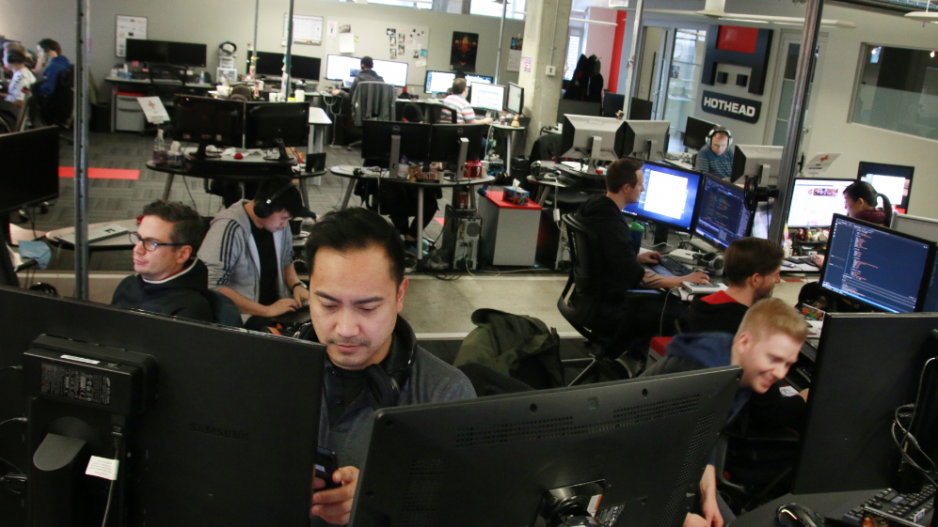It appears B.C.’s video game industry did not hit the pause button during the pandemic.
A new report from the Entertainment Software Association of Canada (ESAC) reveals the number of jobs on the West Coast grew 19% to 8,700 full-time equivalent positions between 2019 and 2021.
During that same period, the number of companies based on the West Coast grew from 116 to 161 (+39%).
But the province remains a laggard in terms of representing women in the industry’s workforce.
Workers who identify as women make up 20% of the local industry — the lowest proportion among all provinces and regions. Women account for 33.2% of the broader tech sector’s workforce in B.C., according to research from HR Tech Group.
Women make up 23% of the gaming workforce in Canada overall.
“This figure is, however, higher than in 2019 when women constituted 19% of the Canadian video game workforce,” the ESAC report stated.
Loc Dao, executive director of the DigiBC industry association, told BIV a combination of government programs and incentives, as well as better data tracking of representation, is needed to address ongoing diversity issues within the sector.
He specifically cited the province’s Innovator Skills Initiative (ISI), which is tapping $29 million from Victoria, Mitacs and the Information and Communication Technology Council to find job placements for 3,000 people facing barriers entering the tech sector — such as women, Indigenous people, Black people and other under-represented groups — by offering companies $10,000 grants.
“DigiBC has launched an EDI [equity, diversity and inclusion] committee and industry education steering committee made up of a cross section of the entire sector from video games, animation, visual effects [and] mixed reality studios that range from small to very large companies,” Dao said in an email.
“Both committees are working on several initiatives from longer-term solutions like Play to Learn — an interactive education program to learn how to make video games, which is taught as part of B.C.’s math curriculum — and Digicamps for Underrepresented Youth for kids nine to 13 years old to develop skills and confidence before they encounter systematic barriers.”
The gaming sector generated $4.3 billion in revenue in 2021 — up 20% since two years ago.
Specific data about B.C. revenue growth was not available in the report, however, ESAC noted that of the West Coast accounted for 27% of the $3.72 billion in sector expenditure this year — the second most after Quebec at 43%.




